Disclosure: This article contains affiliate links. We may earn a commission from purchases at no extra cost to you, which helps our travel content.
There's something almost mythical about Fernando de Noronha that reveals itself gradually—like the perfect plot twist in a well-crafted novel. After decades of exploring coastal havens from Chennai to Cape Town, I've developed what my friends call an 'uncanny radar' for exceptional seafood destinations. Yet this remote Brazilian archipelago, with its emerald waters and dramatic volcanic formations, still managed to exceed my expectations. As I stepped off the small plane onto this UNESCO World Heritage site, I had no idea I was about to embark on perhaps the most extraordinary culinary adventure of my sixty-plus years. For one gloriously indulgent week, I surrendered to the island's rhythms, letting my palate guide me through its remarkable food scene—where the day's catch transforms into art on the plate, and every meal tells a story about this protected paradise.
The Freshest Catch: Understanding Noronha's Seafood Culture
The secret to Fernando de Noronha's extraordinary seafood isn't complicated—it's proximity. Most mornings during my stay, I'd rise early (a habit I've never shaken despite leaving Pittsburgh's writing deadlines behind) and wander down to Praia do Porto to watch the fishing boats return. The fishermen, their skin weathered by decades at sea, would haul in catches so vibrant and diverse it felt like witnessing a marine biology exhibition.
What struck me most was the reverence. Unlike the industrial operations I've witnessed elsewhere, fishing here remains deeply traditional and strictly regulated. The archipelago's protected status means sustainable practices aren't just encouraged—they're mandatory. Catch limits are enforced with vigilance that would impress even the most detail-oriented mystery novelist.
'We take only what we need,' explained João, a third-generation fisherman who invited me aboard his modest vessel one morning. His calloused hands gestured toward the horizon as he described how the confluence of currents creates a marine environment unlike any other in Brazil. 'The fish here, they taste different. They're happier.'
I laughed at the notion initially, but after a week of dining, I couldn't disagree. There's a clean, pure quality to the seafood here that I haven't encountered elsewhere in my travels. Whether it's the isolation of these islands, the protected waters, or simply the care taken from boat to table, the difference is undeniable.
Before setting out on your own culinary expedition, I recommend picking up a lightweight yet comprehensive field guide to identify the various species you'll encounter on menus. Half the joy of dining here is understanding the ecological significance of what you're eating.
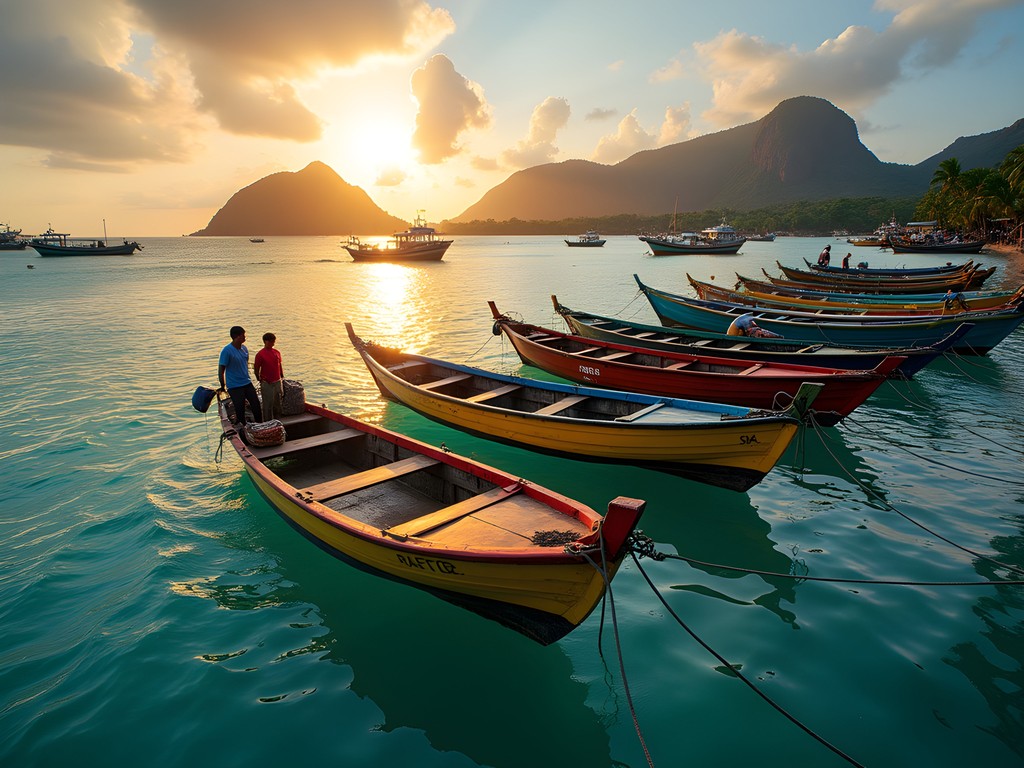
💡 Pro Tips
- Learn a few Portuguese seafood terms before visiting—many menus aren't translated
- Ask about the 'peixe do dia' (fish of the day) even if it's not listed on the menu
- The best restaurants display their daily catch on ice—always a good sign
Beachside Simplicity: The Magic of Noronha's Casual Eateries
For all the luxury accommodations dotting Fernando de Noronha, some of the island's most transcendent culinary experiences happen with your toes in the sand. After decades of travel writing, I've developed a theory: the proximity of kitchen to ocean is inversely proportional to the complexity needed on the plate.
Take Bar do Meio on Praia do Meio, where I found myself returning almost daily. This unassuming beachfront establishment serves what might be the most perfect fish tacos I've encountered in my six decades of global wanderings. The chef—who introduced himself simply as Marcos—prepares the day's catch with nothing more than lime, a secret blend of spices, and what I suspect is generations of inherited wisdom.
'You're from Chennai now?' he asked when I mentioned my adopted home. 'Then you understand good spice.' He proceeded to bring out a house-made pimenta sauce that rivaled anything I've tasted in India's southern states.
Another standout is Mergulhão, a rustic shack perched on the rocks overlooking Baía dos Porcos. Here, the specialty is moqueca—a Brazilian seafood stew that varies regionally across the country. The Noronha version incorporates coconut milk, dendê oil, and whatever fish has been caught that morning, often accompanied by massive prawns that would make Chennai's seafood markets jealous.
What makes these casual spots special isn't just the food—it's the atmosphere. As a novelist, I've always appreciated good scene-setting, and these beachside eateries deliver in spades. At Mergulhão, I spent an entire afternoon nursing caipirinhas made with local fruits while watching surfers tackle waves below. My compact binoculars proved invaluable for spotting sea turtles between courses—a perfect marriage of wildlife watching and culinary indulgence.
The casual spots also offer the best opportunity to engage with locals. One evening at Bar do Cachorro, I found myself in an impromptu Portuguese lesson with a group of Brazilian tourists, attempting to name every seafood in the display case. My pronunciation elicited good-natured laughter, but by the end of the night, I could confidently order robalo (snook) and cioba (red snapper) like a semi-local.
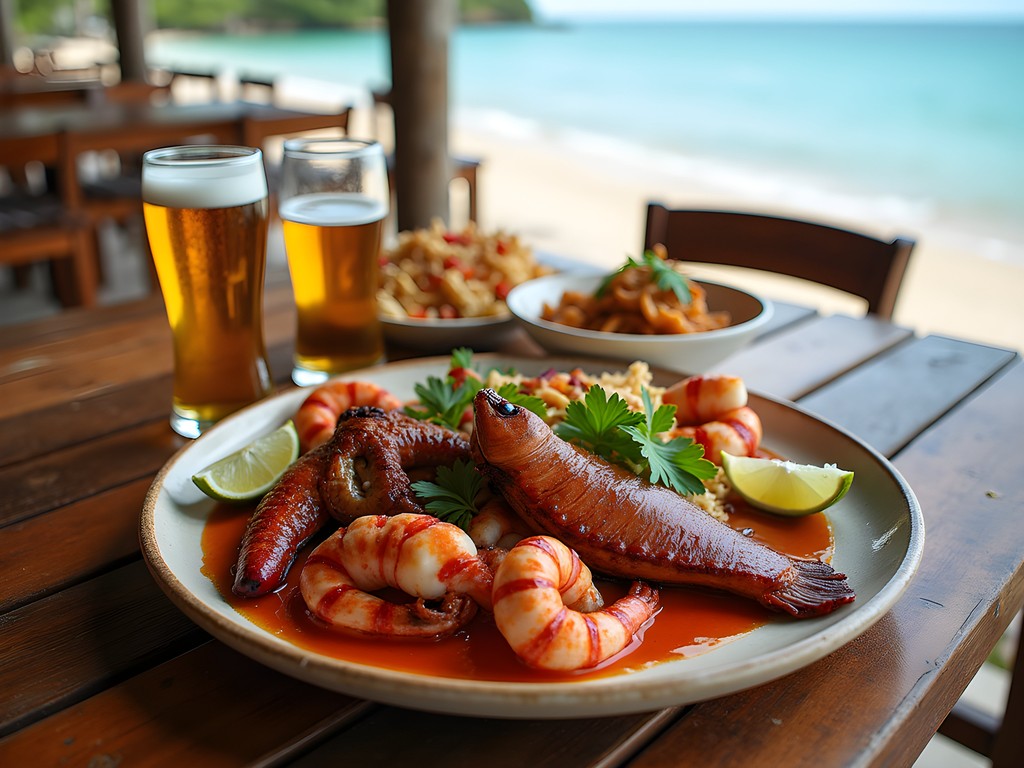
💡 Pro Tips
- Many beach restaurants operate on cash only—bring Brazilian reais
- Make reservations even for casual spots during high season (December-February)
- Ask for the catch to be prepared 'ao molho de camarão'—in a delicious shrimp sauce
Fine Dining with a View: Noronha's Elevated Culinary Scene
While Fernando de Noronha's casual eateries captured my heart, the island's fine dining establishments captured my imagination. Here, innovative chefs are creating cuisine that could stand alongside the world's culinary capitals—but with views those Michelin-starred restaurants could only dream about.
Reserva Noronha sits perched on a cliff overlooking Baía do Sueste, where the Atlantic stretches endlessly toward Africa. The restaurant's design is a masterclass in understated elegance—floor-to-ceiling windows, minimalist décor, and lighting that shifts subtly as the sun sets. But it's Chef Ana Luiza's menu that truly astonishes, combining Brazilian traditions with techniques honed during her training in Portugal and Japan.
During my visit, I surrendered to the seven-course tasting menu, a decision I'd heartily recommend. Each dish arrived as a narrative unto itself—from the amuse-bouche of tuna tartare with local passion fruit to the finale of chocolate terrine infused with indigenous herbs. The standout was undoubtedly the lobster caught that morning, prepared with a subtle coconut foam and served alongside hearts of palm harvested on the mainland.
'We're telling Noronha's story through food,' Ana Luiza explained when I complimented her after the meal. 'The island gives us everything we need.'
Another exceptional experience awaited at Zé Maria, perhaps the archipelago's most renowned restaurant. Here, the Friday seafood buffet has achieved legendary status among Brazilian gourmands, who fly in specifically for the experience. The spread defies description—at least thirty different preparations of fish, shellfish, and crustaceans, each more tempting than the last.
I arrived early to secure a table (essential advice I pass on to you) and watched in awe as the buffet was assembled with the precision of a theatrical production. The owner, Zé Maria himself, supervised the placement of each dish, occasionally tasting and adjusting seasoning.
'You must try the barracuda,' he insisted when he noticed me documenting the display with my travel camera. 'We prepare it differently here than anywhere else in Brazil.'
He wasn't exaggerating. The firm white fish had been marinated in something magical—a family secret, I was told—before being grilled over open flames. It was a revelation that had me returning for seconds, then thirds.
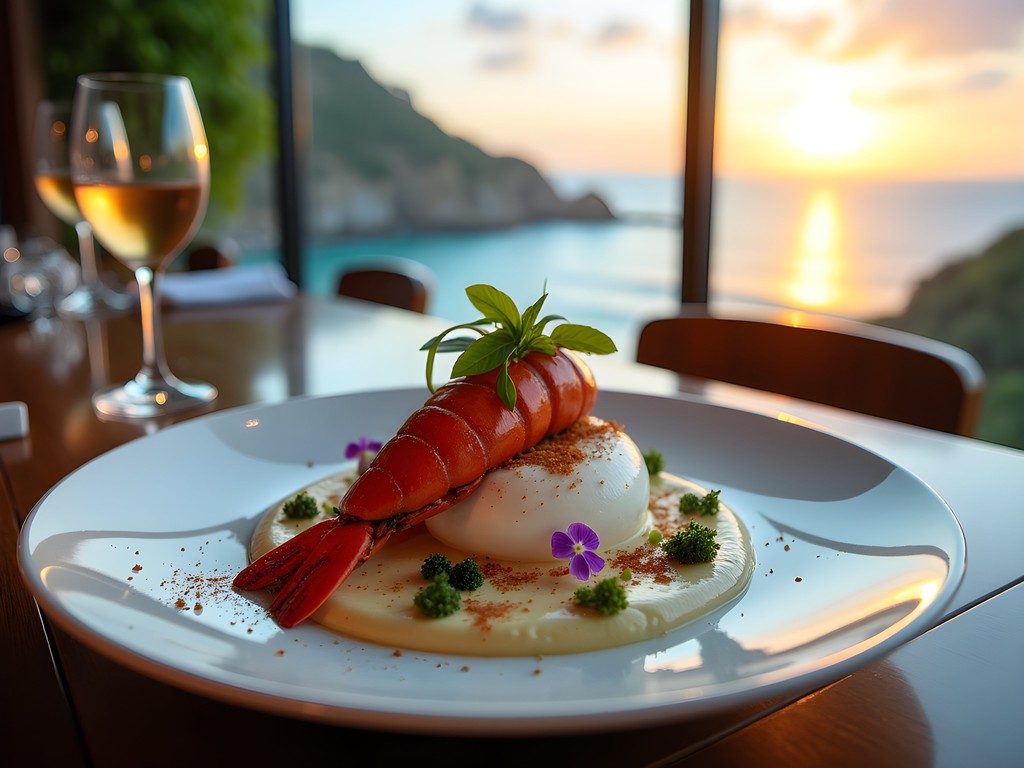
💡 Pro Tips
- Reserve at least two weeks in advance for fine dining establishments
- Request a table timed to sunset for the most magical experience
- The tasting menus are worth the splurge—they showcase the broadest range of local ingredients
Beyond Seafood: Island Ingredients and Brazilian Fusion
While Fernando de Noronha's seafood justifiably takes center stage, limiting oneself to creatures of the deep would mean missing half the culinary story. The island's isolated nature has fostered a unique food ecosystem where mainland Brazilian traditions meet local necessity and innovation.
At Cacimba Bistrô, tucked away on a quiet street in Vila dos Remédios, I discovered how the island's chefs are incorporating endemic fruits and vegetables into traditional recipes. Chef Paulo, a transplant from Recife who fell in love with the island fifteen years ago and never left, creates dishes that honor both his northeastern Brazilian heritage and Noronha's bounties.
'We can't grow everything here,' he explained as he served me a salad of island-grown greens, hearts of palm, and a fruit called graviola that tastes like a sweet-tart combination of strawberry and pineapple. 'But what we can grow has a flavor you won't find anywhere else.'
The volcanic soil gives local produce an intensity that becomes addictive. Even simple side dishes—like the manioc root puree that accompanied my grilled fish—carried complex mineral notes that spoke directly to the island's geology.
I was particularly taken with the creative use of cashews at several establishments. Most visitors know cashews only as nuts, but in Brazil, the cashew apple (the fruit to which the nut is attached) is prized for its sweet-tart flavor. At Restaurante Ecologico, I enjoyed a refreshing cashew apple sorbet that perfectly cleansed the palate between more robust seafood courses.
Even breakfast becomes an adventure here. At my pousada's morning spread, tropical fruits I'd never encountered appeared daily—jabuticaba, caju, and my favorite, the sweet-tart carambola. The locally produced honey, infused with island wildflowers, transformed simple toast into something worth writing home about.
For those looking to bring home flavors of the island, I recommend visiting the small but excellent Casa de Forno. This bakery/market sells jams made from local fruits, infused cachaças, and spice blends unique to Noronha. My suitcase returned to Chennai considerably heavier, packed with culinary souvenirs and my travel journal filled with hastily scribbled recipes and flavor notes for my own kitchen experiments.
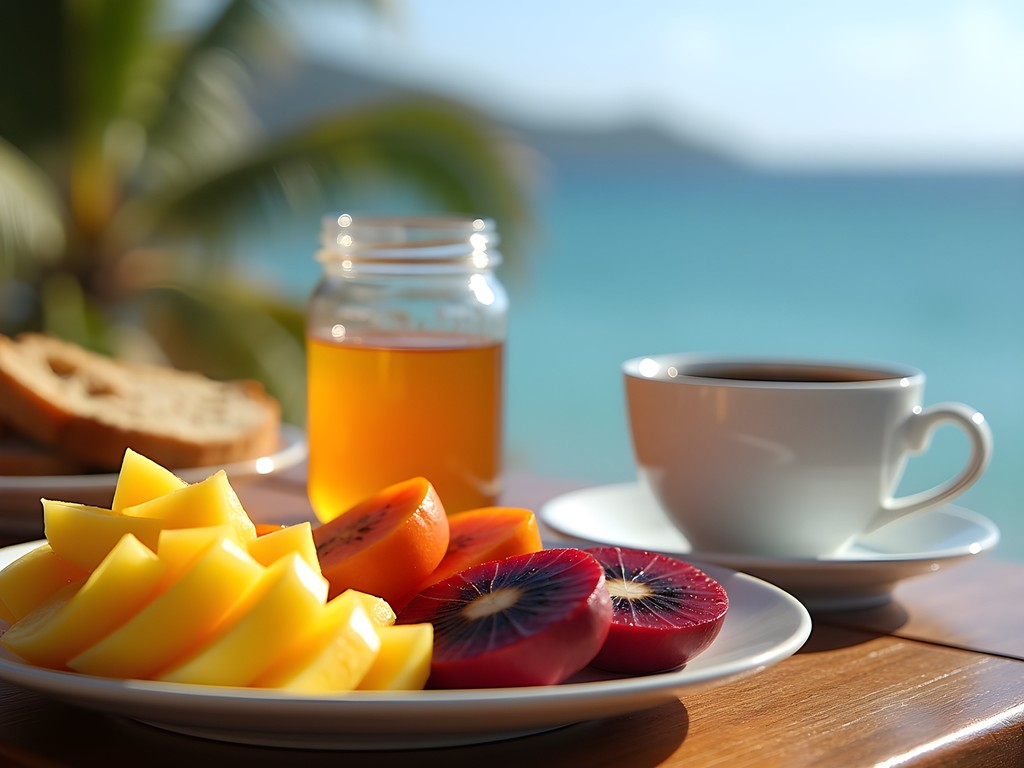
💡 Pro Tips
- Ask about the day's locally grown vegetables—they often don't appear on menus but are available
- Try cashew apple juice (suco de caju) at least once—it's nothing like you'd expect
- Local honey makes an excellent souvenir that easily passes through customs
Sustainable Dining: The Island's Eco-Conscious Food Philosophy
Perhaps what impressed me most about Fernando de Noronha's culinary scene wasn't just the quality—it was the profound commitment to sustainability that permeated every dining experience. As a protected marine sanctuary, the archipelago approaches food with an ecological mindfulness that puts many self-proclaimed 'green' destinations to shame.
At Restaurante Ecológico, this philosophy is built into the very foundation. The open-air structure was constructed using reclaimed materials, and the kitchen operates entirely on solar power. Owner Marta, a marine biologist turned restaurateur, maintains strict standards about which seafood makes it onto her menu.
'We follow the lunar calendar for fishing,' she explained as we shared a bottle of Brazilian organic wine. 'And we never serve species that are vulnerable, no matter how traditional they might be in Brazilian cuisine.'
This commitment extends to waste management—a critical concern on a remote island. Many restaurants, including the excellent Varanda, have implemented composting systems that return nutrients to the island's gardens. Plastic is notably absent; my caipirinha at Bar do Cachorro came with a pasta straw that would biodegrade within days if it somehow escaped proper disposal.
What's remarkable is how these practices aren't marketed as novelties or selling points—they're simply the way things are done here. When I commented on this to Rodrigo, the owner of a small café near Praia da Conceição, he seemed genuinely perplexed.
'This is our home,' he said with a shrug. 'We protect it because we must.'
For visitors, participating in this ethos becomes second nature. I found myself carrying my reusable water bottle everywhere, refilling it at the filtered water stations that dot the island. Most restaurants happily topped it up with purified water—a small but meaningful departure from the plastic bottle culture that plagues many tropical destinations.
The sustainable approach extends to the growing farm-to-table movement on the island. Several restaurants maintain small gardens where herbs and select vegetables are grown using permaculture principles. At Mergulhão, I watched the chef step outside to clip fresh basil and rosemary moments before they were incorporated into my fish stew—a level of freshness that no imported ingredient could match.
This harmonious relationship between consumption and conservation creates a dining experience that nourishes both body and conscience—a rare combination in today's travel landscape, and one that left me hopeful about the future of culinary tourism.
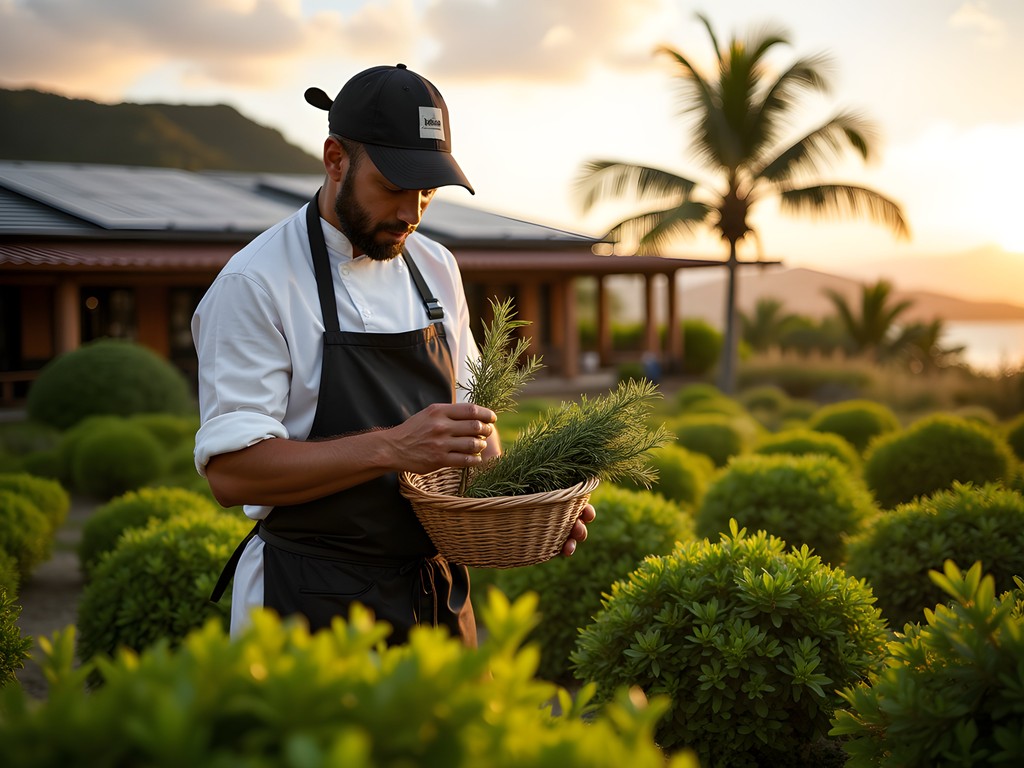
💡 Pro Tips
- Bring a reusable water bottle and shopping bag—plastic reduction is taken seriously on the island
- Ask about fishing methods when ordering seafood—restaurants are proud to explain their sustainable practices
- Visit during the island's off-season (April-June) to reduce tourism impact while still enjoying excellent dining
Final Thoughts
As my week in Fernando de Noronha drew to a close, I found myself sitting at Bar do Meio one final time, watching spinner dolphins arc through the golden waters of sunset. The waiter—now familiar enough to know my preference for caipirinha with less sugar—placed a simple plate before me: freshly caught fish, grilled with nothing but salt, lime, and perhaps a whisper of garlic. 'Our goodbye gift,' he said with a smile.
In that moment, I understood what makes dining in Noronha so extraordinary. It's not just the impeccable seafood or the breathtaking settings—it's the profound connection between place, plate, and people. In our increasingly homogenized culinary world, Fernando de Noronha remains gloriously, stubbornly authentic—a reminder that the best food experiences aren't just about taste, but about context and care.
Whether you're a dedicated gourmand or simply someone who appreciates a meal with meaning, this remote Brazilian paradise deserves a place at the top of your culinary bucket list. Just come hungry, leave your expectations at the mainland, and prepare for your definition of seafood excellence to be forever altered.
✨ Key Takeaways
- Fernando de Noronha offers world-class seafood in settings ranging from barefoot casual to sophisticated fine dining
- The island's protected status ensures sustainable fishing practices and exceptionally fresh, high-quality seafood
- Beyond seafood, local fruits, vegetables, and traditional Brazilian dishes showcase the island's unique terroir
- Reservations are essential for fine dining establishments, particularly during high season (December-February)
📋 Practical Information
Best Time to Visit
Year-round, with August-December offering ideal weather and fewer crowds
Budget Estimate
$150-300 per day for dining experiences (excluding accommodation)
Recommended Duration
5-7 days
Difficulty Level
Beginner
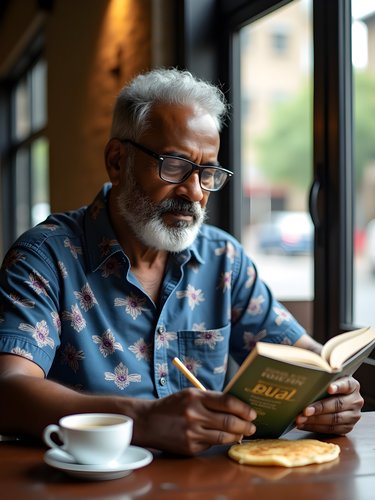
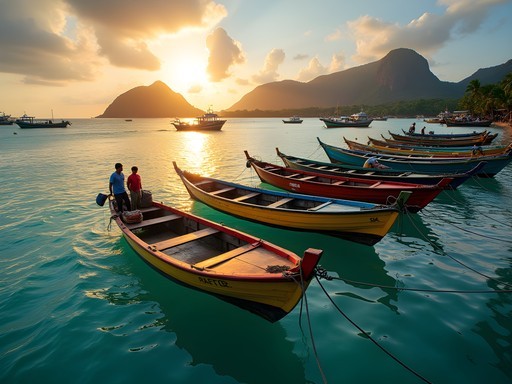
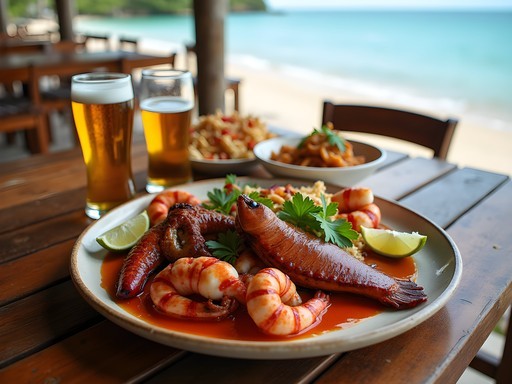
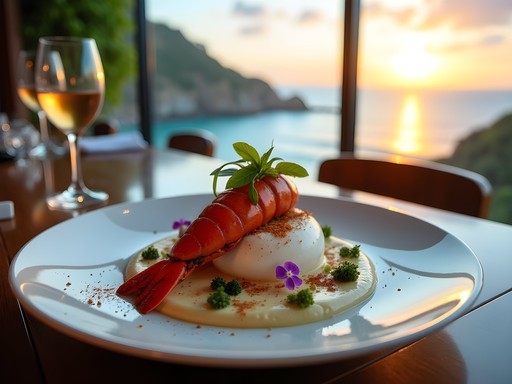
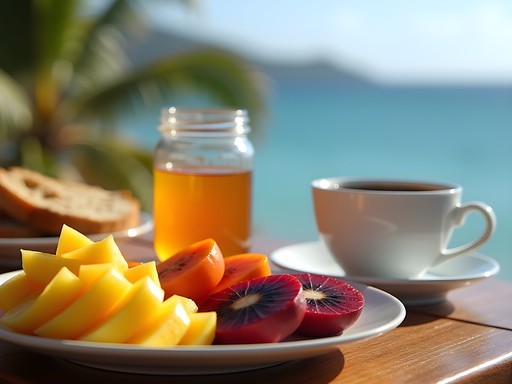
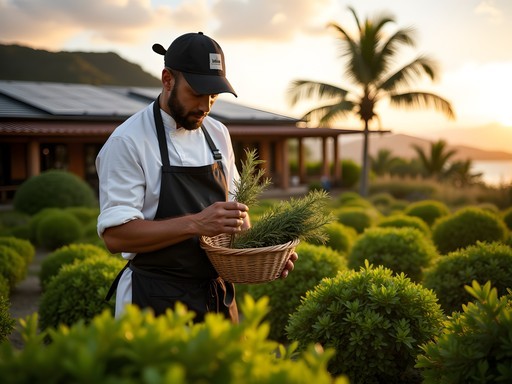


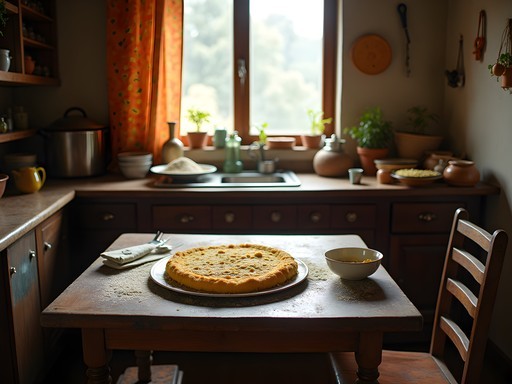
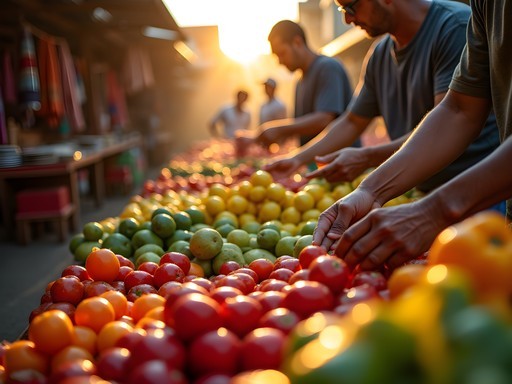
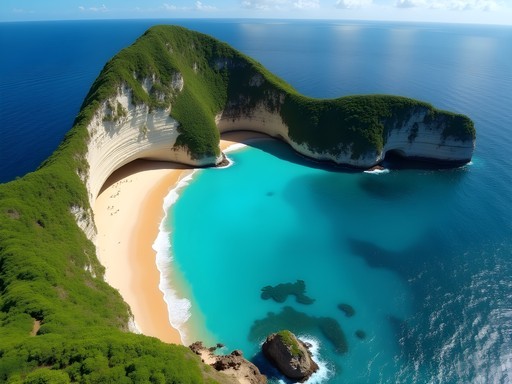
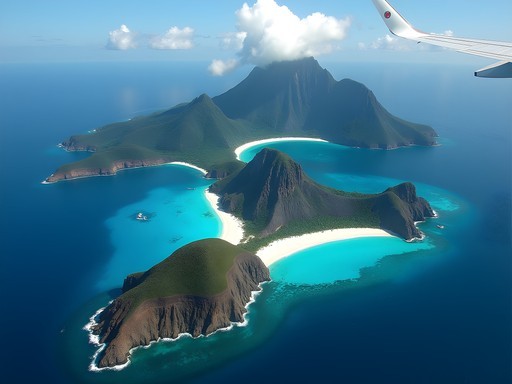
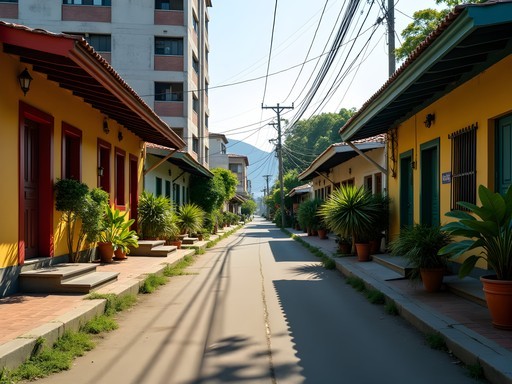


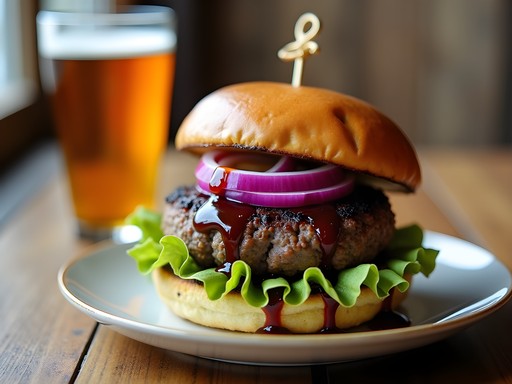
Comments
winterguy
Bar do Meio is the best spot on the island, hands down. Go for sunset.
Taylor Moreau
Excellent write-up, Preston. I visited Noronha back in 2024 for a travel conference and was absolutely blown away by the seafood quality. The octopus at Xica da Silva was the best I've had outside of Portugal. One tip I'd add for readers: try to time your dining around low tide at the beach restaurants - you can walk right up to some incredible tidal pools between courses. The combination of exceptional food and that unique island ecosystem makes for an unforgettable experience. Also worth noting that several restaurants now offer cooking classes if you want to learn traditional Brazilian seafood preparation techniques.
Preston Henry
Great addition about the cooking classes, Taylor! I didn't get a chance to do one but heard wonderful things. The tidal pool tip is spot on - that's exactly what makes the beachside dining so special.
Sophia Gomez
Preston, this brought back so many memories! I visited Noronha two years ago and still dream about the grilled octopus I had at a tiny beachside spot near Praia do Cachorro. The way the locals prepare seafood there is just different—so simple but so perfect. I remember talking to a fisherman who explained how the daily catch limits actually keep the quality incredibly high. It's one of those rare places where environmental protection actually enhances the culinary experience. Did you get a chance to try any of the tapioca dishes? The Brazilian fusion you mentioned is spot-on—watching chefs blend traditional island ingredients with modern techniques was fascinating.
photowalker940
Now I really want to go!
backpackguy
How expensive is eating out there? I'm on a pretty tight budget but really want to visit
adventuregal
Not Preston but I went last year - it's definitely pricey since everything is imported to the island. Budget at least $25-30 per meal at casual places, more for fine dining. The food is worth it though!
backpackguy
ok good to know, thanks!
adventuregal
The photos are gorgeous! Adding this to my bucket list
smartgal
This looks amazing! Quick question - do you need to make reservations at these places or can you just walk in? Planning a trip for September and trying to figure out how much to plan ahead vs wing it.
Preston Henry
Hey! Most casual beachside spots are walk-in friendly, but I'd definitely recommend booking the nicer restaurants 2-3 days ahead, especially during high season. Bar do Meio gets packed at sunset!
smartgal
Perfect, thanks so much!
coffeeblogger
This looks incredible! How hard is it to actually get to Fernando de Noronha? I've heard the flights are limited and expensive. Did you find the food prices reasonable once you're there, or is everything super pricey because it's an island? Really want to go but trying to budget for it.
winterguy
It's definitely pricey getting there and staying. But totally worth it if you can swing it. Book flights way in advance.
coffeeblogger
Thanks! Yeah I'm looking at flights now and they're not cheap haha
photowalker940
Those dolphin photos are amazing!!
Sage Dixon
Preston, this post brings back so many memories! I spent two weeks in Fernando de Noronha last year and the seafood completely ruined me for life - nothing tastes as fresh back home. The casual beachside spots were my favorites, especially the little family-run place near Praia do Sancho (can't remember the name) where the fisherman's wife cooked whatever he caught that morning. One tip for anyone planning a visit: the island has distinct high and low seasons that affect seafood availability. I went during March when the waters were calmer, and the variety of fish was incredible. The locals told me September-November can be more limited. Also, don't miss trying the local twist on moqueca - the Fernando de Noronha version uses ingredients from the island that make it unique from the mainland recipe.
wildlover
Thanks for the seasonal tip! I'm planning for April next year so sounds like good timing for seafood variety!
bluechamp
Which restaurant had the best lobster? Planning a trip for next year and seafood is my absolute favorite!
Sage Dixon
Not the author but I was there last month! Definitely try Mergulhão for the lobster - they do this amazing preparation with garlic butter and local herbs that's out of this world. Just make sure to reserve a few days ahead, especially during high season.
bluechamp
Thanks so much! Adding Mergulhão to my list. Any other must-try seafood spots?
Sage Dixon
Bar do Meio is fantastic for casual beachside dining - their grilled octopus is incredible. And don't miss the moqueca at Ecological Restaurant. I tracked all my favorite meals in my travel journal which was super helpful for remembering all the amazing dishes!
Venture X
Premium card with 2X miles, $300 travel credit, Priority Pass